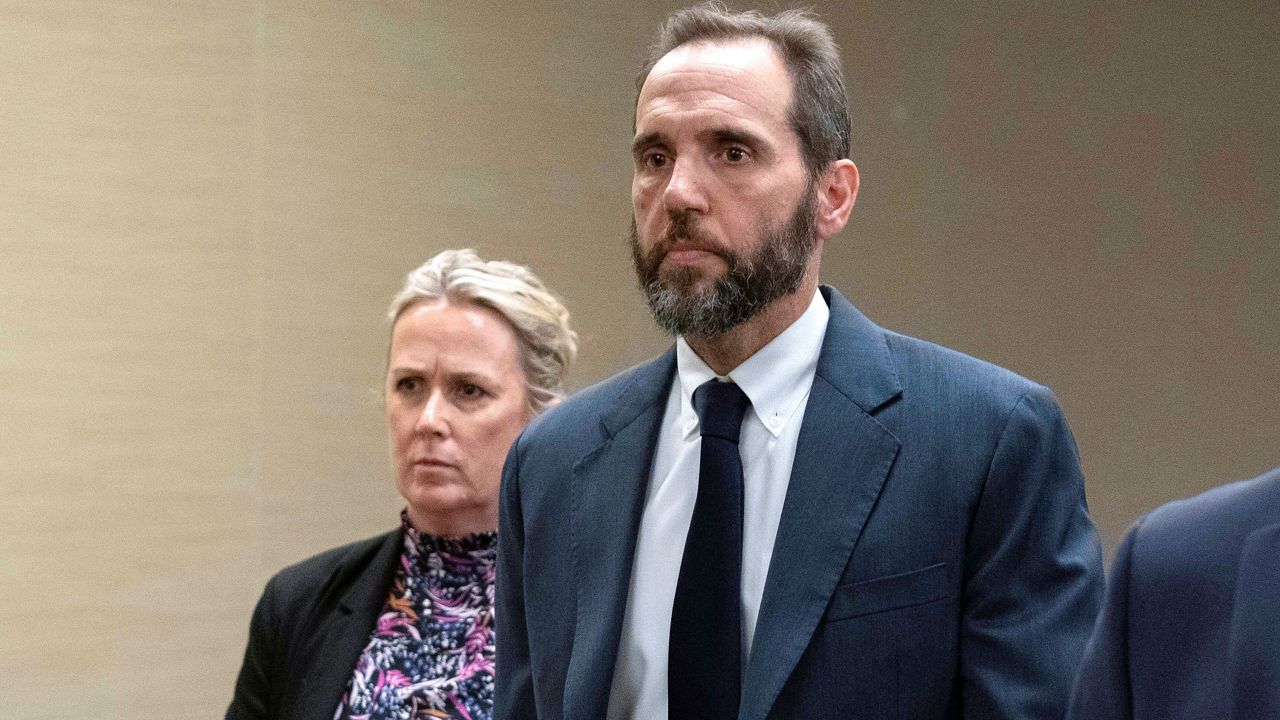Special counsel Jack Smith has proposed a Jan. 2, 2024, trial date for the election interference case against former President Donald Trump, according to court documents filed Thursday.
Jury selection would begin in December, per the proposed schedule. The government estimates that the case "will take no longer than four to six weeks," keeping true to the prosecutors' desire for a swift trial before before U.S. District Judge Tanya Chutkan in Washington.
"This trial date ... would give the defendant time to review the discovery in this case and prepare a defense, and would allow the Court and parties to fully litigate any pre-trial legal issues," Smith writes in the filing. "Most importantly, a January 2 trial date would vindicate the public’s strong interest in a speedy trial — an interest guaranteed by the Constitution and federal law in all cases, but of particular significance here, where the defendant, a former president, is charged with conspiring to overturn the legitimate results of the 2020 presidential election, obstruct the certification of the election results, and discount citizens’ legitimate votes."
The proposed date would also just two weeks before the first votes are cast in the Republican presidential primaries, in which Trump is the undisputed front-runner. The Iowa caucuses kick off on Jan. 15, 2024.
Prosecutors allege that Trump and a group of unnamed co-conspirators -- many of whom have been identified by media outlets -- orchestrated a scheme to try and send slates of false electors in states won by Democrat Joe Biden in an effort to try and delay or block the certfication of the 2020 election. They also say he tried to pressure then-Vice President Mike Pence to try and overturn the results of the election on Jan. 6, 2021, the day that the Electoral College votes were being certified -- and, later, the day a mob of his supporters stormed the U.S. Capitol in an effort to disrupt the counting.
Trump pleaded not guilty last week to four felony charges in the case, including conspiracy to defraud the United States government. Trump has decried the case as politically motivated and denied any wrongdoing. His defense attorneys have suggested that the former president will rely on a defense based on the First Amendment, as well as the fact that he was relying on the advice of counsel and had the right to challenge the results of the 2020 election.
If convicted, Trump could face up to 55 years in prison on those charges. Trump has already said he will attempt to change the venue of the trial, claiming he won't be able to receive a fair trial in an overwhelmingly Democratic-leaning area like Washington, D.C. -- a highly unlikely and difficult proposition.
Attorneys in the case are currently sparring over a protective order being sought by prosecutors, which would aim to prevent Trump from publicly disclosing evidence the government is handing over. Defense attorneys argue such a move could restrict his First Amendment rights, but prosecutors are pointing to his proclivity to post about cases against him on social media.
Next year already looks to be a busy one for the former president on both the campaign trail and the legal front. While Iowa voters caucus across the state on Jan. 15, a defamation suit against Trump brought by writer E. Jean Carroll, who won a sexual abuse lawsuit against him earlier this year, is set to begin.
Then in mid-March, a criminal trial in New York involving alleged hush money payments made to an adult film star ahead of the 2016 election is set to kick off, followed by another federal case in May, also brought by Smith, involving the alleged mishandling of classified documents found at his Florida estate.
Trump has denied wrongdoing in any of the cases against him, branding them as politically motivated.
The former president could also face yet another indictment in the coming weeks coming out of Fulton County, Georgia, where a district attorney has been investigating efforts by Trump and his allies to overturn the state's 2020 election results.



